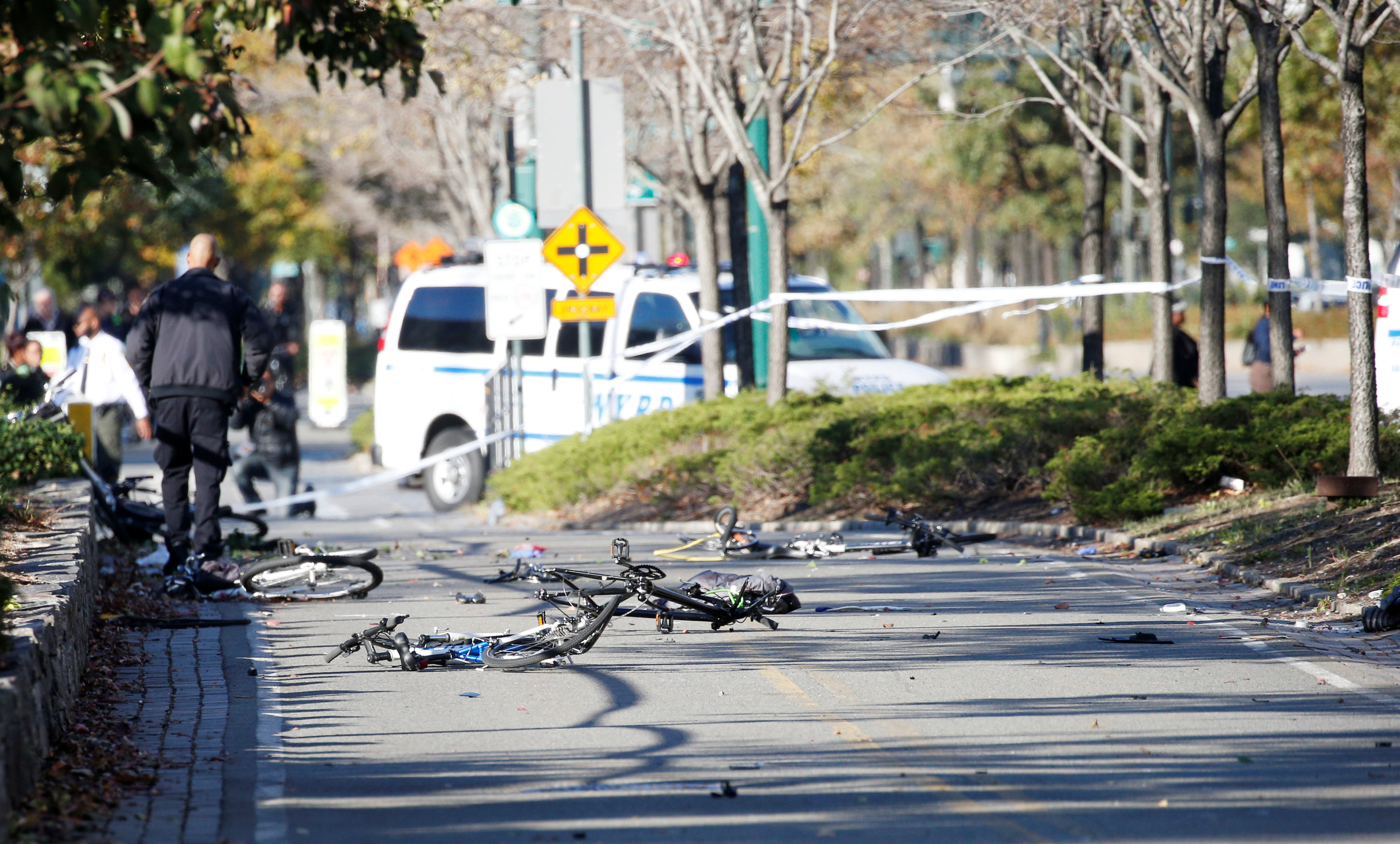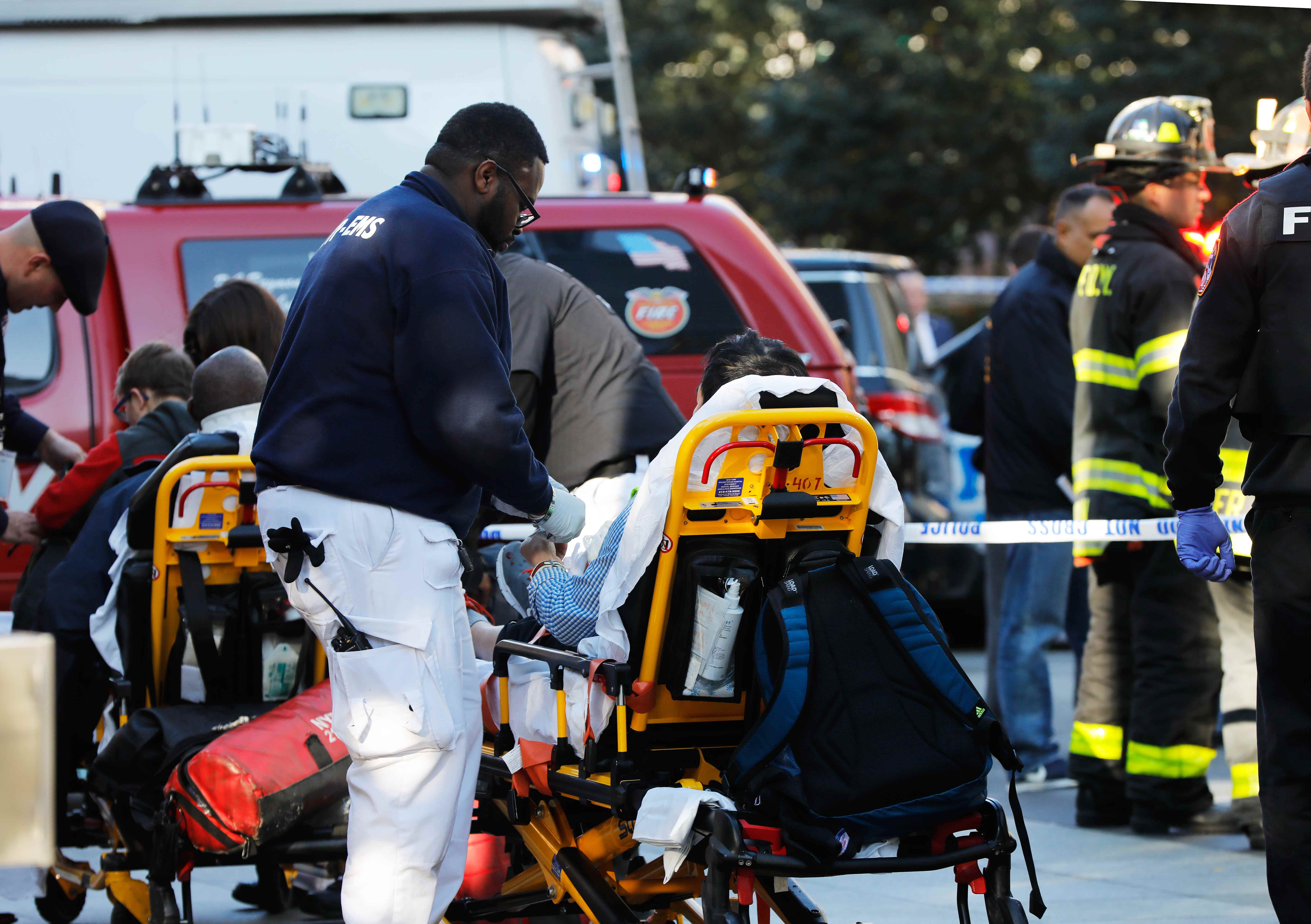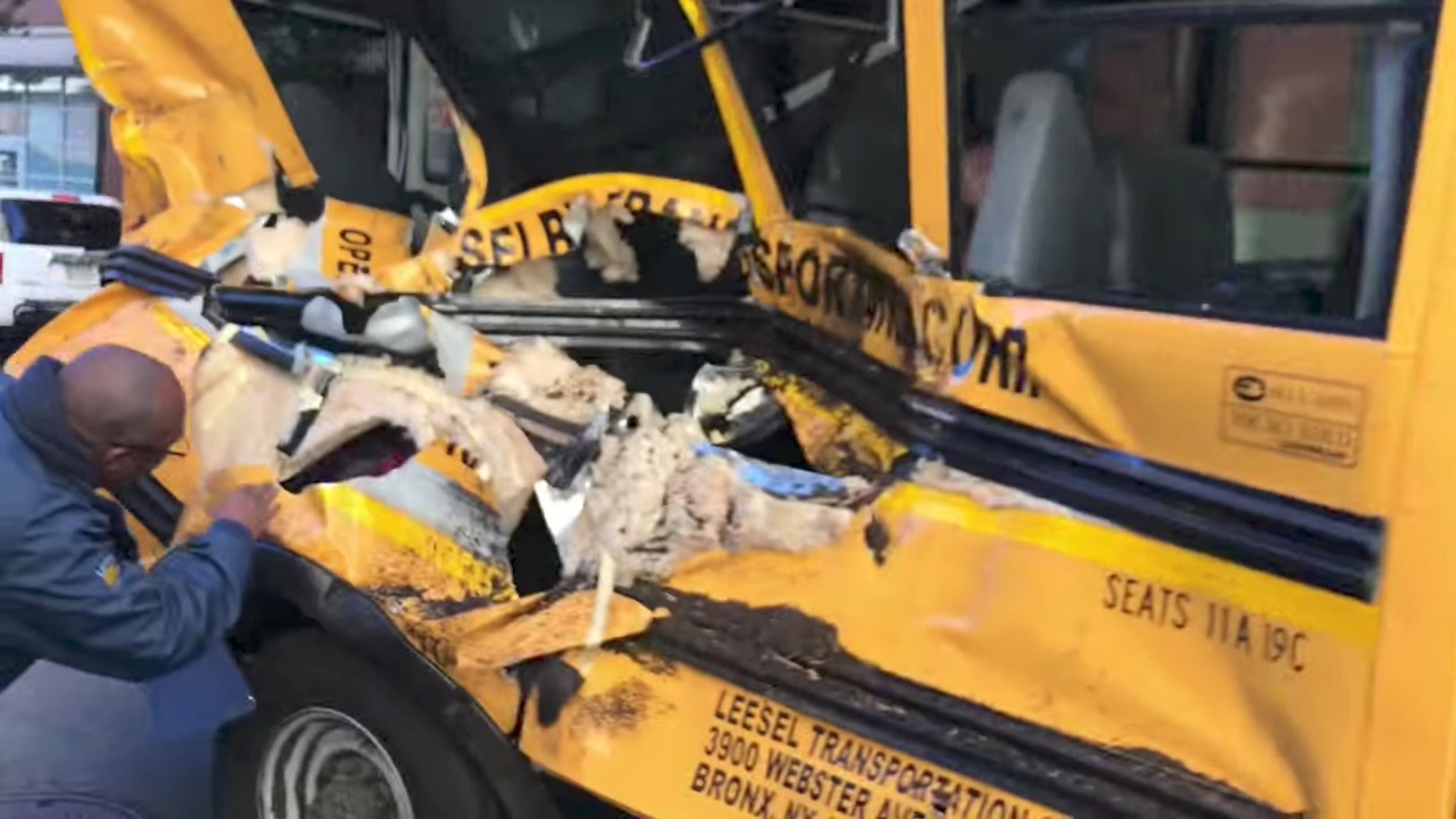
By Gina Cherelus and Daniel Trotta
NEW YORK (Reuters) – An Uzbek immigrant accused of killing eight people in New York City by driving a rental truck down a riverfront bike path on Tuesday appeared to have acted alone in an attack that bore all the hallmarks of terrorism, authorities said.
The suspect, who was shot by police and arrested moments after the rampage in Lower Manhattan, left a note saying he carried out the attack in the name of the militant Islamic State group, the New York Times and CNN said.
The death toll was lower than from similar assaults in Spain in August and in France and Germany last year. However, it was still the bloodiest single attack on New York City since Sept. 11, 2001, when suicide hijackers crashed two jetliners into the World Trade Center, killing more than 2,600 people.
The suspect allegedly swerved the pickup onto a path filled with pedestrians and bicyclists on a sunny, crisp autumn afternoon, mowing down everyone in his path before slamming into the side of a school bus.
The man then exited the vehicle brandishing what turned out to be a paint-ball gun and a pellet gun before a police officer shot him in the abdomen.

Multiple bikes are crushed along a bike path in lower Manhattan in New York, NY, U.S., October 31, 2017. REUTERS/Brendan McDermid
The attack, which left crumpled bicycles scattered along the path and victims writhing on the ground, was over in seconds.
In addition to the eight fatalities at least 11 people were hospitalized for injuries described as serious but not life-threatening. That excluded the suspect, who underwent surgery for gunshot wounds.
Police declined to publicly identify the man, but a source familiar with the investigation said his name was Sayfullo Saipov, 29. He reportedly lived in Paterson, New Jersey, a one-time industrial hub about 25 miles (40 km) northwest of lower Manhattan.
He had rented the pickup from a Home Depot hardware store which, according to media accounts, was located in Passaic, just south of Paterson.

First responders tend to a victim after a shooting incident in New York City October 31, 2017.
ARGENTINE FRIENDS AMONG DEAD
Six victims were pronounced dead at the scene and two more at a nearby hospital, Police Commissioner James O’Neill said.
Five of the dead were Argentine tourists, visiting New York as part of a group of friends celebrating the 30th anniversary of their high school graduation, the government there said. Belgium’s foreign minister said a Belgian citizen was also among those killed.
Despite the attack, thousands of costumed Halloween revelers turned out hours later for New York City’s main Halloween parade, which went on as scheduled on Tuesday night with a heightened police presence just a few blocks away.
Mayor Bill de Blasio said police will be out in force to protect the city’s marathon, which is scheduled for Sunday. “You’ll see a lot of officers with long guns. Other things you won’t see that are protecting us,” he told MSNBC.
A U.S. law enforcement official described the suspect as a U.S. immigrant born in Uzbekistan, a predominantly Muslim country in Central Asia that was once part of the former Soviet Union. CNN and NBC News said he entered the United States in 2010.
Uzbekistan’s President Shavkat Mirziyoyev said his government would do all it could to help investigate the “extremely brutal” attack.
Authorities late on Tuesday surrounded a house in Paterson where, according to the New York Times, Saipov was believed to have lived. Paterson, known for its large immigrant population, is home to about 150,000 people, including 25,000 to 30,000 Muslims.
ABC News reported that Saipov had lived in Tampa, Florida. A check of court records related to a traffic citation that Saipov received in eastern Pennsylvania in 2015 showed he listed addresses then in Paterson and Cuyahoga Falls, Ohio.
CNN and other media outlets, citing police officials, reported that the suspect shouted “Allahu Akbar” – Arabic for “God is greatest” – when he jumped out of his truck.
Although authorities from the mayor’s office to the U.S. Department of Homeland Security all swiftly branded the attack an act of terrorism, New York Governor Andrew Cuomo stressed that the suspect was believed to have acted alone.
The New York Times said investigators quickly recognized Saipov had come to the attention of law enforcement in the past. It cited three officials as saying federal authorities knew of Saipov from an unrelated probe, although it was unclear whether that was because he had ties to someone who was under scrutiny or because he was the target of an investigation.

A damaged school bus is seen at the scene of a pickup truck attack in Manhattan, New York, U.S., October 31, 2017 in this picture obtained from social media. Sebastian Sobczak via REUTERS
U.S. Representative Adam Schiff, the ranking Democrat on the House Intelligence panel, told MSNBC in an interview that authorities were not aware of any other suspects, but that finding any such links would be a priority.
“It’s still I think far too early to say” whether the suspect was radicalized before he came to the United States years ago or shifted once he was already here, or acted on his own rather than at the behest of an organized group, he said.
U.S. President Donald Trump, who has pressed for a ban on travelers entering the United States from some predominantly Muslim countries, said on Twitter that he had ordered Homeland Security officials to “step up our already Extreme Vetting Program. Being politically correct is fine, but not for this!”
He also criticized the U.S. visa system, blaming Democrats and saying that he wanted a ‘merit based’ program for immigrants to the United States.
(Reporting by Dan Trotta and Gina Cherelus in New York; Additional reporting by Jonathan Allen, Anna Driver and Barbara Goldberg in New York, Dan Whitcomb in Los Angeles, Mark Hosenball and Susan Heavey in Washington; Writing by Steve Gorman; Editing by Paul Tait and Chizu Nomiyama)










